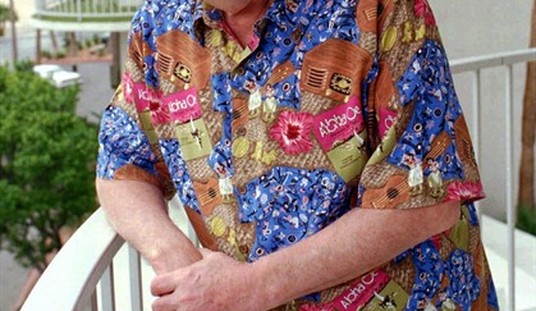Every now and then I read an article somewhere by someone who just returned from Libya and says the country is much more open and in much better shape than it was recently. I never believe these articles. They seem to be describing an alternate universe. When I visited Qaddafi’s mad outdoor laboratory myself not long ago, the place stank so badly of oppression that I can only imagine improvement being measured over decades, not years, and that it can’t begin in earnest until somebody else is in charge.
Maybe I’m wrong. I haven’t been there for six years, and even Soviet-style countries aren’t entirely static. Michael Moynihan’s dispatch from Libya in Reason magazine, though, describes the exact same miserably ideological basket case state that I saw in 2004.
His piece is as entertaining as it is educational, and I recommend it to you whole heartedly. Here’s a taste.
Tripoli, Libya—Perhaps I overestimated the bien-pensant British understanding of “modernity.” When the BBC reported that “at Tripoli’s ultra-modern airport…you could be almost anywhere in the world,” I expected at bare minimum a Starbucks, a fake Irish pub, and (this is the ultra bit) a bank of vending machines dispensing iPods and noise-canceling headphones.
Well, perhaps we came through Libya’s spillover airport, its Midway or Stansted, because this is “anywhere in the world” only in some mad, dystopian-novel sense. Available for purchase are Egyptian gum, cheap watches celebrating 40 years of the Libyan revolution, and glossy magazines with Hugo Chavez on the cover. Sinister men in baggy uniforms, all puffing Marlboros, shout at each other and disappear with my passport. I later find out this bit of theater was required because I possess a passport stamp from Ben-Gurion Airport in Tel Aviv. After some discussion, my personal government apparatchik informs the entire staff of Libyan customs that, on orders from high, this particular learned elder of Zion can be allowed through.
[…]
Libya ought to at least resemble a wealthy country, with its vast oil reserves and all those desperate politicians willing to do almost anything in exchange for access to them. Yet Tripoli is covered from end to end in garbage. Among the few benefits of living in a dictatorship, I had presumed, were that the trains run on time, crime is low, and armies of revolutionary trash collectors ensure that tourists tell their friends the country might not have elections but is at least exceptionally clean.
Remove the oil economy, and it isn’t entirely clear what Libyans do for money. The only shops I spot are selling either vegetables or cigarettes, sometimes both. There are markets trading in all manner of junk: old sewing machines, toilets, fake perfume (Hugo Boos seems particularly popular). The most frequently promoted product (aside from the ubiquitous face of Qaddafi staring down from countless billboards) is, inexplicably, corn oil. After decades of crippling trade sanctions under an aging and increasingly batty dictator, and with no tourism industry to speak of, Libya’s economy is a shambles. In their latest Index of Economic Freedom, the Heritage Foundation and The Wall Street Journal rank the country 171st out of 179, only slightly edging out the Union of the Comoros and the Democratic Republic of Congo.
Besides sucking the economic life out of Tripoli, Qaddafi determined that the capital city, once a playground for Italian and British colonizers, must also be denuded of fun. Alcohol, which for years helped people forget they lived in Libya, is prohibited. Nonalcoholic beer is available in our hotel (a five-star, though it appears to have been graded on a curve), but only to placate (or taunt) the few Western visitors who pass through. The pious Muslims of Libya are not unlike vegetarians, surrounding themselves with pointless facsimiles of the forbidden, from beef bacon to bottles of booze with all the booze removed.
No matter how hard governments try, though, it is increasingly difficult to close a country to all malignant Western cultural influences. The tighter the controls, the more pedestrian the content that sneaks through. Libyan teenagers have scrawled “50 Cent” and “Tupac” throughout Tripoli’s largest souk. On a crumbling yellow wall outside a bootleg DVD shop, someone was inspired—doubtless by a contraband hip-hop CD—to scribble “fuck yo” in defiance of nothing much at all. Inside the DVD shop, the Hollywood film Fat Albert is available for a few dollars—popular, presumably, because the title character, like most Libyans, lives in a junk yard.









Join the conversation as a VIP Member